
Nikk Ogasa is a staff writer who focuses on the physical sciences for Science News, based in Tucson, Arizona. He has a master's degree in geology from McGill University, where he studied how ancient earthquakes helped form large gold deposits. He earned another master's degree in science communication from the University of California, Santa Cruz. His stories have been published in Science, Scientific American, Mongabay and the Mercury News, and he was the summer 2021 science writing intern at Science News.

Trustworthy journalism comes at a price.
Scientists and journalists share a core belief in questioning, observing and verifying to reach the truth. Science News reports on crucial research and discovery across science disciplines. We need your financial support to make it happen – every contribution makes a difference.
All Stories by Nikk Ogasa
-
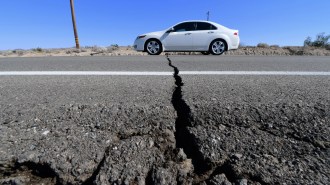 Earth
EarthWhere are U.S. earthquakes most likely? A new map shows the hazard risks
Updates to the National Seismic Hazard Model have elevated the average ground shaking hazard across the country.
-
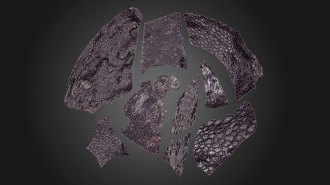 Paleontology
PaleontologyThe oldest known fossilized skin shows how life adapted to land
The nearly 290 million-year-old cast belonged to a species of amniotes, four-legged vertebrates that today comprises all reptiles, birds and mammals.
-
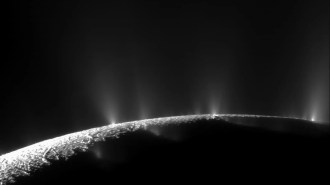 Planetary Science
Planetary ScienceA toxic gas that could help spawn life has been found on Enceladus
Cassini data indicate that hydrogen cyanide, a key building block for life, exists on Saturn’s icy moon. A snakelike NASA robot might test for sure.
-
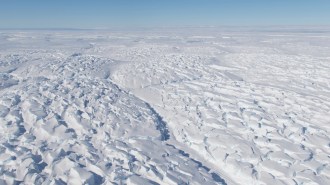 Earth
EarthSpeed bumps under Thwaites Glacier could help slow its flow to the sea
A seismic survey of Thwaites’ icy underbelly shows the Antarctica glacier may be snagging on tall rises in land. That could help slow global sea level rise.
-
 Climate
ClimateHere’s how 2023 became the hottest year on record
The effects of climate change were on clear display in 2023 as records not only broke, but did so by surprising amounts.
-
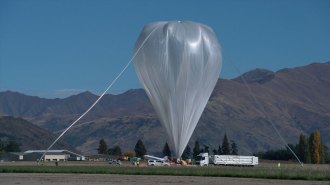 Space
SpaceA telescope dropped dark matter data from the edge of space. Here’s why
Last May, NASA’s Super Pressure Balloon Imaging Telescope crash-landed in rural Argentina. Scientists scrambled to recover the dark matter data aboard.
-
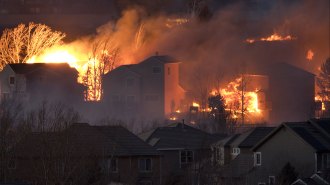 Environment
EnvironmentGrassland and shrubland fires destroy more U.S. homes than forest fires
Grassland and shrubland fires destroyed nearly 11,000 homes in the contiguous United States from 1990 to 2020.
-
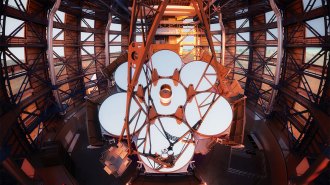 Space
SpaceHow giant mirrors are made for what will be the world’s largest telescope
The Giant Magellan Telescope is slated to probe the cosmos for Earthlike worlds and atmospheric signatures of potential extraterrestrial life.
-
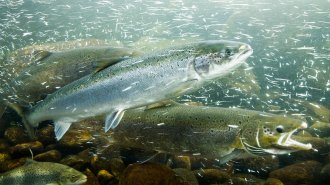 Animals
AnimalsPumping cold water into rivers could act as ‘air conditioning’ for fish
Hundreds of salmon, trout and other fish sought shelter from summer heat in human-made shelters, suggesting a way to help fish adapt to river warming.
-
 Earth
EarthTo form pink diamonds, build and destroy a supercontinent
The Argyle deposit in Australia formed about 1.3 billion years ago, a study shows, along a rift zone that sundered the supercontinent Nuna.
-
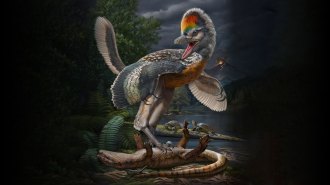 Paleontology
PaleontologyThis newfound birdlike dinosaur had surprisingly long legs
Early birdlike dinosaurs are mostly short-limbed and thought to have lived in trees, but Fujianvenator prodigiosus may have run or waded in swamps.
-
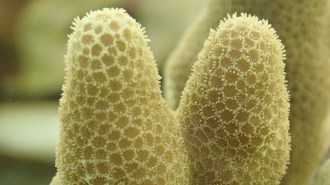 Animals
AnimalsAdult corals have been safely frozen and revived for the first time
Chunks of living corals could be frozen for safekeeping and revived later to restore reef ecosystems that are withering in warming seas.